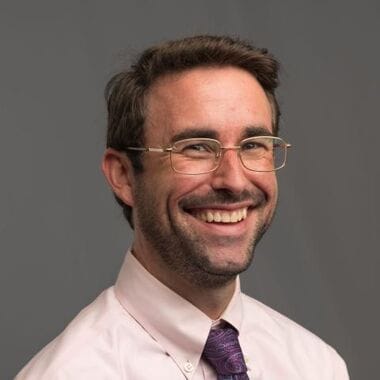Sean Murphy
Eastern North Carolina '08
Sean Murphy discusses his career path from the classroom to providing mental health support for marginalized communities.
Q&A
How has your time in the corps influenced your career trajectory?
I taught special education as a 2008 corps member with Teach For America North Carolina and was invited to join the inaugural Northeast Leadership Academy cohort at NC State. From there, I earned my Master's in School Administration, geared towards rural communities and focusing on school leadership and transformational leadership. Once I completed the program, I served as an Assistant Principal in Eastern North Carolina in a tight-knit community. I credit the community members and parents for playing a large part in the school’s success and in recognizing the barriers students faced.
Shortly after, I joined Teach For America New York to support incoming corps members during institute. Then, I served as Director of a school in the Bronx and later as a corps member coach on Teach For America New York. After my first child was born, my wife and I moved back home to Knoxville and taught at a high school before deciding to transition into counseling.
What brought you to Ohio?
One of my professors at the University of Tennessee studied mental health in rural Appalachian communities, and I really wanted to continue to invest in that work. So, as I looked for schools where I would complete my yearlong residency program, I came across Ohio University, given its proximity to rural communities.
What was a pivotal moment in your career that shaped your approach to your work?
As a corps member coach, my team and I participated in a diversity training series every couple of months, with full days of learning and homework in the interim. While I had an understanding of social justice and disparities because of the experiences of my students, the series deepened my understanding of how systems of power and oppression work. It helped to explain a lot of ways in which my students were affected by generational discrimination. It gave me a different frame of how marginalized populations are disadvantaged through systems of power. What I learned then continues to play a huge role in the way I work as a therapist.
How does your experience serving as a corps member in Eastern North Carolina continue to inform your work in rural education?
My experience comes down to one word: community. In rural regions, I find that there is such a commitment to supporting one another and a strong sense of folks relying on one another. One of the things that appealed to me before I started the corps was reading about how communities come together and have that shared sense of identity. Even though there are challenges, there is still this shared sense of pride.
My experience in rural education has helped me examine how mental health stigma impacts students in rural communities. I honor that it can be very difficult to talk about mental health and family, so I am intentional about being in the community to help build trust and connection.
What advice would you share with incoming corps members?
First, recognize that community is one of your greatest resources. Trying to tackle challenges on your own won’t work because real change happens through collaboration, especially in rural areas. Second, it's so important to prioritize mental health awareness. Take the time to understand and validate your students' mental health needs, and don’t hesitate to seek out community resources to ensure you’re not carrying that burden alone.
